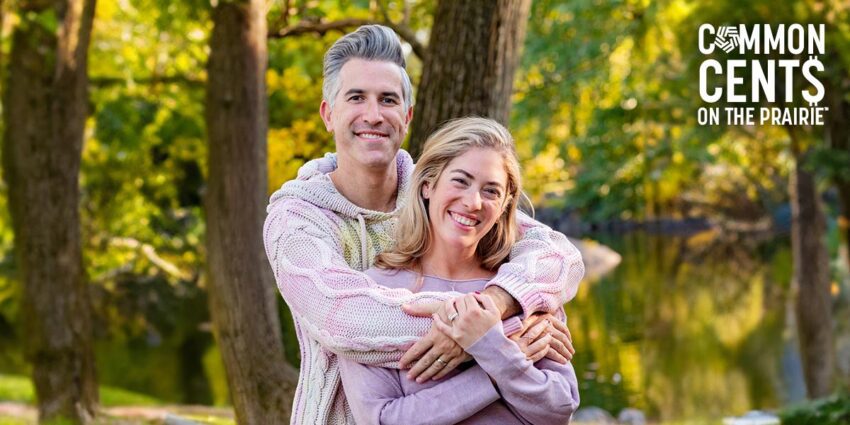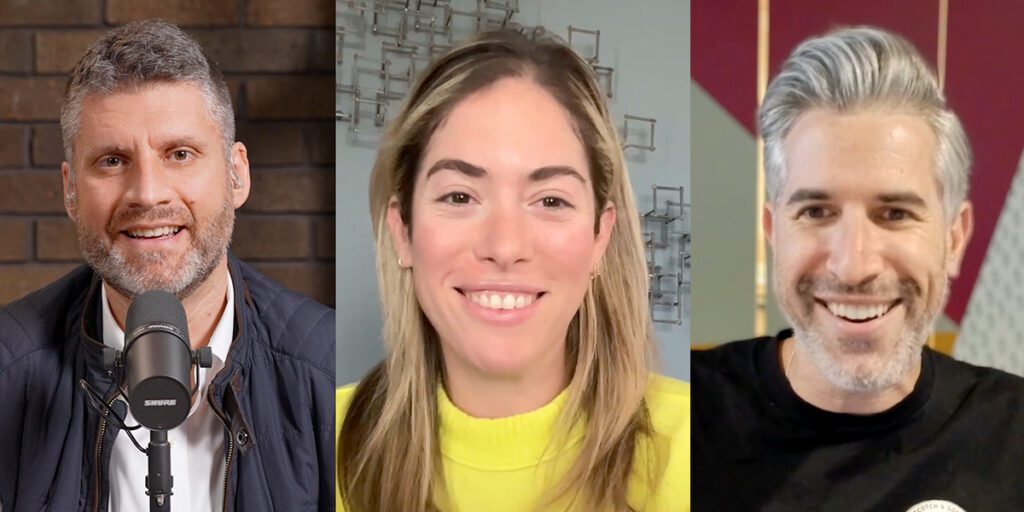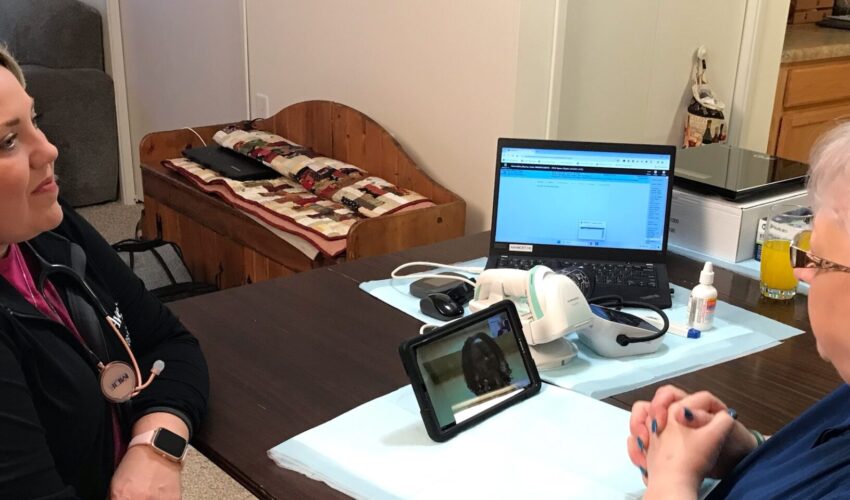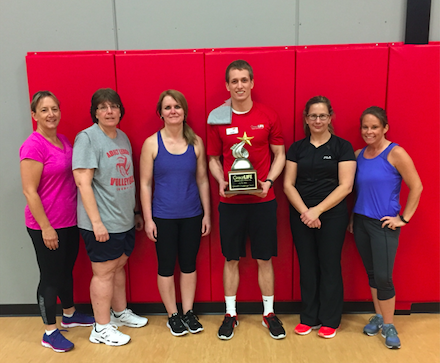Local podcast shines light on common struggle among couples: Merging financial lives
This paid piece is sponsored by First National Wealth Management.
For Heather and Douglas Boneparth, their episode of the local “Common Cents on the Prairie”™ podcast isn’t just a money story. It’s a love story.
These college sweethearts, who grew up with vastly different money experiences, overcame all obstacles to merge their financial lives — and now, they’re using the lessons they learned to help others do the same.
Check out the highlights from their conversation with Adam Cox below. And, when you’re ready, you can watch the full episode on YouTube or listen on your favorite streaming app.
One couple, two vastly different experiences with money
Adam: Let’s start this conversation where we start all of our conversations with couples — I’d love to hear about your background with money. Heather, why don’t you start us off?
Heather: I’m an only child and grandchild on both sides of my family. My parents got divorced when I turned 13, and I continued to live with my mom until I went to college.
I became a bit of a pawn in a financial dispute between my parents in the formative years of my life, and it directly impacted my perception of money. I think that’s a good backdrop for my motivation professionally and how I came into my adult life having somewhat of a misguided approach to money.
Douglas: Different experience, to say the least. I grew up in an upper-middle class family in Boca Raton, Florida. And I grew up in an entrepreneurial household.
My father and his father always ran businesses. That flowed through to both my brother and I; we were always building businesses too. We had a computer repair business throughout all of our middle school and high school years, so we were cleaning up on the weekends. It was pretty sweet and easy money.
That would flow through to how I would ultimately build a business of my own. I really didn’t know any other way to do it than pursue the more entrepreneurial path.
Money, you know, we earned. If we wanted something, we explained why we wanted it, and we did what we needed to do to earn it. And then, at some point, whatever we wanted we bought ourselves.
Heather: Just to further illustrate the difference between Doug’s childhood and mine — I had to ask, and the ask often didn’t immediately result in receiving. The ask usually resulted in some sort of prolonged negotiation between my parents.
Who would do it? Who would get it for me at the end of the day? This definitely carried over into the time when Doug and I met.
Adam: I’m curious — who did you ask when you needed money?
Heather: My mom did not work at the time when my parents got divorced, but my dad was financially responsible for both of us at that time. My mom knew what I needed, but a lot of times it was, “When you see your dad every other week, make sure that you get whatever you need during that time.”
And I think that’s where my perception of money got really messed up because I didn’t see my dad very often for a couple of years there. And I felt like I had to use that time to always be asking for something.
The challenge of merging financial lives
Adam: So you guys were 18 when you met?
Heather: Yes. We met freshman year of college.
Adam: When did you start dating?
Heather: Straight out of the gate! We had a ton of fun, but we both knew that, after college, there was going to be a crossroad in our lives. Doug was planning to go back to Florida to work at his father’s firm, and I was planning to go off to law school, which ended up being in New York City. I mean, we loved each other. But we did not know where life would take us.
Adam: The two of you obviously did work it out; you’re married. You have very different money backgrounds, very different experiences and maybe very different motivations. I’d like to know what it was like when the two of you got serious about being together and staying together — and what that meant financially. How did you merge the two of those things?
Heather: I thought that I was doing the responsible thing by going to law school. So I went to a very expensive law school. I was shown a million salary charts of how much money I would make coming out of school. And then, it didn’t happen because it was the Great Recession.
I graduated underemployed with more than $200,000 in student loan debt. I was lucky to have a job at all, but it was a way underpaid job. I was making negative money if I was paying back my loans.
And Doug kind of — not to give him, like, the male savior thing here — Doug kind of saved me. He could offer financial knowledge that I didn’t have and a way to really understand how to wrap my hands around what was actually in front of me and not be so afraid of a number that I couldn’t function.
Then, Doug eventually declared his love for me and said: “I love you. I’m coming to New York City.”
Douglas: There’s a little more nuance to it, but yeah. It is a love story at the end of the day. I moved to New York City, walking away from quite a bit.
With debt, I had to get rid of my car lease. I had student loans from undergrad. All I had, really, was a salary to be a financial advisor and work in some other advisor’s practice. I moved up with negative money and four boxes.
Heather: A duffel bag and a dream.
Adam: Heather, how did it feel when your financial problems became our financial problems?
Heather: There was a moment when Doug basically said to me, “Well, this isn’t just a you problem. This is our problem now.”
Not, “I’m going to pay off your debt” — it wasn’t about that. It was the notion of “This is our mountain to climb together, and you will not ever be shamed by me for this. You will only be empowered, and we will attack it together.”
That’s what a team does. That’s what a marriage is all about.
There was no greater testament to Doug’s commitment to me — almost more than him proposing to me — than him offering to tackle the student loan debt. That is how co-mingled love and money were to me at that point in my life.
And his willingness to tackle this with me told me everything I needed to know about him and our relationship and how successful we’d be together in a partnership.
Bringing couples to the dining room table
Adam: I want to hear about the book project you have because obviously we have a big passion on our podcast about talking to couples about money. Why did you start this project? And, what do you hope other people get out of this book?
Douglas: Adam, you mentioned it: We don’t talk about money. We don’t even talk about it with our spouses and where to begin and how to do that, how to enter an uncomfortable territory.
I get to come up with a framework of how people are actually going to be able to improve their lives, improve their marriages, make sure things like what Heather experienced as a kid don’t happen. That’s my mission on this book.
Heather: So I approach it from a different angle. Something that’s beautiful and I think is really the ethos of this book is that you bring to a relationship your own value system and your own money identities. They’re built off your past. They’re built off your family dynamic and your socioeconomic disposition.
These are the things that you bring to a relationship, and trying to merge them is very difficult. So a lot of people just stop trying.
Whether or not money is the most fought-about conflict in a relationship, our research has proven it’s the most pervasive. It’s the most recurrent, and it poses one of the greatest risks to the long-term health and success of your relationship.
I think that we have to do the work. It’s taboo, and it’s icky, and it’s hard to discuss, but there’s so much to be gained.
So I approach this as I want women to have a seat at their own dining room table that they may not have had. I really believe that our empowerment and our progress as a gender is directly linked to our willingness to advocate for ourselves and to be seen at home.
To me, this book is not just about prescriptive advice on how to merge a bank account. This is about validating feelings and about people feeling seen and understanding why your spouse comes at a money decision from the place that they do.
I believe we’re approaching this in a way that no one has ever approached this before. And that’s my mission: to bring us to the table and kind of move the ball forward here in a meaningful way.
If you’re ready to have more meaningful conversations around money but don’t know where to start, reach out to the team at First National Wealth Management. They’d be happy to help!
Any comments, insights or strategies discussed in this article are intended to be general in nature and, therefore, may not be suitable for you and your situation, whatever that may be. Before acting on anything written here, please consult with your attorney, CPA and/or your financial advisor.









